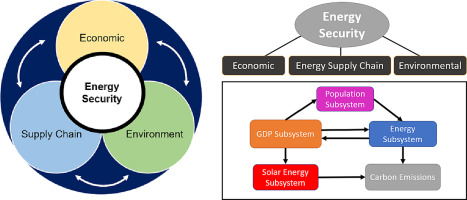Dr. Bellam Sreenivasulu received his Ph. D., in chemistry from NUS. His other degrees include M. Sc., (analytical chemistry), and B. Ed. (physical sciences). After his Ph. D., he worked as a postdoctoral fellow for one year at the Institute of Chemical and Engineering Sciences (ASTAR, ICES). After that, he started teaching and acquired several years of tertiary level teaching and learning experience in various undergraduate and graduate courses in chemistry and applied chemistry, at NUS and SUTD in Singapore. While teaching at NUS, he was also a Resident Fellow at Kent Ridge Hall where he enjoyed an opportunity of actively engaging students through interactions, hall's events and cultural activities both in formal and informal settings. Besides teaching he has been actively involved in various committees such as National Chemistry Week steering committee, curriculum committee, pedagogy committee and cohort advisor committee, outreach and welfare committee, UROP projects review committee etc.
Currently, at RC4 one of his areas of focus is teaching systems thinking and system dynamics skills in relation to energy systems and related issues on sustainable energy production, energy supply and demand, energy security, carbon emissions etc. through designing and implementing effective, impactful and interdisciplinary student‐centered pedagogy to enhance students' critical and systems thinking skills. He is passionate about teaching, student mentoring, curriculum and pedagogy development activities and engaging students for their and learning and holistic development etc.
His research areas and interests are chemistry/science education research, students' misconceptions in physical sciences/chemistry and teaching implications, along with topic of systems thinking education and pedagogy, etc. A few of his hobbies are badminton, cricket, music, reading, writing and family outings.
Abstract
Faced with international climate obligations and domestic pressure, Singapore has recently raised its climate goals significantly. The government had affirmed its intention for carbon emissions to peak before 2030 and for Singapore to attain net zero greenhouse gas emissions by 2050. However, as Singapore transitions to green energy, there remains much uncertainty if this transformation, coupled with rapidly evolving geopolitics, would present vulnerabilities to energy security. Hence, this paper is an attempt to investigate Singapore's possible paths to achieve these goals while enhancing energy security in view of present and future energy plans. Key parameters of energy security in Singapore's context are identified to determine how different policy decisions would influence them. The effects of various current and potential policies can thus be evaluated using a systems thinking and system dynamics approach to propose new energy solutions to improve energy security. System dynamics modelling reveals that new energy supply solutions would have to be considered in Singapore's Energy 2050 Plan while furthering efforts in reducing energy demand. Findings reveal that Singapore should have a target of >80% renewable energy by 2050, pursue a central strategy towards sustainable diversification of its energy sources into hydrogen, electricity imports and solar energy and reduce energy consumption. Accordingly, Singapore's energy security can then be improved in terms of the economic, energy supply chain and environmental dimensions, and towards attaining net-zero emissions.

Highlights
- Systems approach to Singapore Green Plan 2030 and simulation of policies towards energy security and net zero.
- Systems thinking and system dynamics modeling to evaluate key assumptions and energy security parameters.
- Model validation, both structural and behavioral, through base model simulations as well as behavioral tests.
- Effect of government policies on hydrogen energy, low carbon electricity imports and energy saving on energy security.
- Simulations suggest policies for higher renewable energy targets to attain net zero carbon emissions and energy security.
Abstract
We report here on an exploratory study done with a sample of university students (N = 140) which sought to explore their understanding of the term 'coordination number', a concept encountered in the topic of transition metals chemistry, through a simple open-ended question. The findings show that the conceptual space related to the conceptions students harbour span the interval from non-canonical to canonical limits. That is, the responses from the students include incorrect, partially correct and correct answers. Additionally, instructor commentary, based on teaching experience acquired with a number of cohorts of students, is provided for the range of conceptions encountered, a departure somewhat from the traditional approach, and among the very few, if any, studies, which use such an approach. Those conceptions that are partially correct cannot strictly be labelled as alternative conceptions as it is argued that these can still be used by students to solve problems set in certain contexts on the topic.




